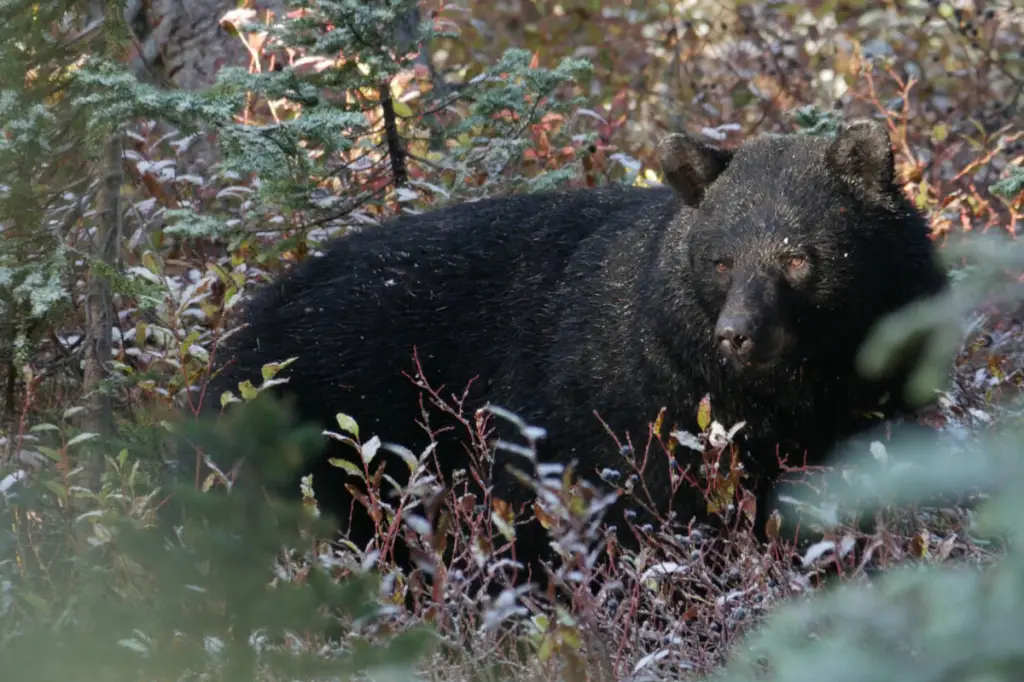Copyright kelownacapnews

Even as snow sprinkles the peaks around Revelstoke, the bears have stayed out searching for food and the time remains ripe to discuss human-wildlife conflict and coexistence. Back from the seventh International Human-Bear Conflict Workshop in Kalispell, Mon., Revelstoke Bear Aware Society executive director Kait Nicol and board member Annie Pumphrey spoke Tuesday evening at Revelstoke Museum and Archives about where the town is excelling and underperforming. Despite the U.S. government shutdown, 400 bear specialists from as far as Central Europe attended the weeklong event Oct. 5 to 9. This year, while a tamer bear period for Revelstoke, turned into a fruitful berry season, which Nicol and Pumphrey noted Oct. 28 may yield more cubs and subsequently lead to busier bruin activity in 2026. Different factors lure bears into human communities, whether accessible garbage, lack of natural food or protection from other bears and predators, and habituated bears and food-conditioned bears often go hand in hand, according to Pumphrey. “The more they spend time with people and get used to food rewards, the more they lose their wariness,” said Pumphrey, a biologist for the Ministry of Land, Water and Resource Stewardship’s wildlife branch. She added that if Revelstoke doesn’t ensure proper securing of garbage, it risks becoming like Lake Tahoe, Calif., which the California Department of Fish and Wildlife says has seen increased human-black bear conflict in recent years. With historical attempts to manage bears via relocation, diversionary food sources, hazing and lethal intervention largely ineffective and requiring too many resources, “we’re trying to shift it from bear management to human management,” Pumphrey explained, pointing to better practices for securing attractants. “We’re the problem. The bears need calories and they are going to find them.” Contacting Revelstoke Bear Aware remains a productive course of action residents can take to reduce conflict, especially to share latest details of a bear’s whereabouts in town so the society can prop up a “Bear in Area” sign. “Reporting bear sightings is incredibly helpful,” Nicol said. “I know not all houses have the infrastructure to secure garbage in your shed.” Alternatively, participating in the local fruit gleaning program is an effective way to reduce other tempting food sources for bears. From its 2025 run, Revelstoke Bear Aware salvaged and diverted more than 2,000 pounds of fruit, helping feed mouths through the Community Connections (Revelstoke) Society and pulling from an annual pool of 350 gleaning volunteers. “I don’t want people to get fined,” Nicol said. “I just want people to put their trash away and pick their fruit.” Collaborating with Revelstoke Bear Aware, B.C.’s Conservation Officer Service (COS) also plays a key role responding to bear reports around town — rarely responding with lethal means. “I truly appreciate how responsive our conservation officers are,” she said, also stressing that they hate when they do have to put down bears. At the October workshop, Heather Rich of the Nevada Department of Wildlife articulated to listeners that while she was responsible for euthanizing food-conditioned bears, it was the members of her community as a whole that killed them by failing to secure their garbage. For Nicol and Pumphrey, the main takeaway from the event was how effective education and outreach are for managing human-bear conflict. “I think we’re doing a lot right,” Nicol said. “We should be proud of what we’re done and we should celebrate that we coexist with bears, and these are the steps we can take.” That said, “one thing that’s talked about a lot but underutilized in Revelstoke is electric fencing,” she said, adding she’d like to see more residents installing it to protect their gardens and chickens. Revelstoke Bear Aware also hopes to see the city implement a bylaw to require that commercial trash be properly secured, rather than just residential garbage, as currently enforced under Bylaw No. 2178. Even as the city looks ahead to bear-resistant curbside bins — including for compost — arriving to town for late 2026, Nicol cautioned that these bins are still only bear-resistant. Pumphrey explained that bears often pass on tricks to one another for accessing garbage, for example. “They’re all breaking the bins the exact same way,” she said. Today, things look day and night compared with the decades before Revelstoke’s bear aware program began in 1996. Dozens of both black and grizzly bears were killed every year, with nearly 70 dispatched in 1987. In 2023, the COS reported euthanizing just one black bear in town, and as of June 30, had killed just two this year. At the Kokanee Fish Fest in September, Revelstoke Bear Aware educated 120 Grade 2 students about effective human-bear management, along with keeping the public informed at Saturday farmers’ markets and other events. The society also recently announced the winners of its Revelstoke Burger Challenge. The fall fundraiser encourages community members to “eat like a bear” and vote for their favourite burger joint in town. First, second and third places this year went to Taco Club, Big Eddy Pub & Liquor Store and Zalas Restaurant, respectively. Learn more about Revelstoke Bear Aware at revelstokebearaware.org. An annual membership with the non-profit society costs $10.



